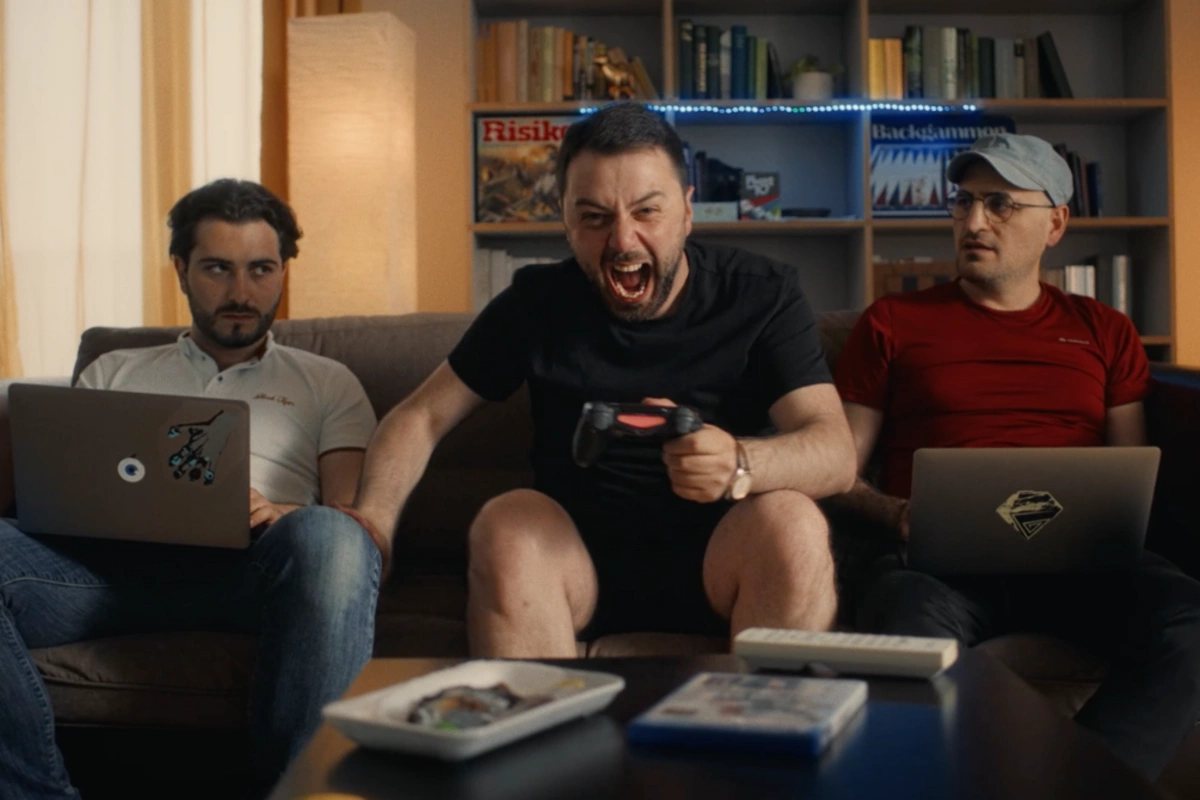
A Georgian, an Armenian, and an Azerbaijani—all three students at a German university—are allocated a shared flat in Berlin. How will they get on, ‘living with the enemy?’ This is the starting premise for the excellent mini-series Dolma Diaries screening via YouTube.
Image: courtesy photo
The making of dolma—stuffed vine leaves or vegetables—has been on Unesco’s list of intangible cultural heritage since 2017 as a ‘marker of cultural identity.’ The Unesco listing specified such dolma cooking and sharing as being Azerbaijani, but in reality, dolma (known as tolma in Armenia, dolmades in Greece, warek enab in Lebanon, etc) is one of several specific recipes, which is essentially common to the whole Eurasian region transcending differences of politics and religion to create a culinary bond.
So, it’s no coincidence that an ambitious and humorous new mini-series about cross-cultural relationships between people from different Caucasian countries has been named “Dolma Diaries.” The very name helps underline a forgotten sense of cultural commonality that exists beneath the geopolitical surface.
Set in ‘neutral’ Berlin, the

Thus, an amusing satire of inter-state disputes is set up, caricaturing the Caucasus in a semi-absurdist microcosm. One of several dead-pan parodies sees Armen and Azer using coloured tape to divide the kitchen and living room into personal zones. Armen initially gives himself more of the couch because of the “rights” of having moved in first.
However, both fear telling their families back home that they are sharing with ‘the enemy.’ Thus, ironically, each needs the other to help ‘fool’ their parents on respective Zoom calls. Each plays along saying ‘hello’ to unwittingly approving relatives by pretending to be from a different, non-controversial European background. The game is afoot. The pilot edition ends after this successful, if tiny, act of cooperation[2] , with Gio begging the others: “Now let’s enjoy Berlin.” With the scene set, it’s hard for audiences not to be hooked and binge on the

In these, the growling Armen-Azer relationship develops in fits and starts, impeded by disapproval from family and friends. Meanwhile, plenty more fun is added with the addition of a Russian character putting Gio into a spin and sexual politics teasing out further strands of tension. We won’t spoil it by telling you more!
The introductory episode took five years to get off the ground, explains series co-writer and director Oliver Müser, who coordinated input from filmmakers, journalists, comedians, musicians, students, and civil society figures from Armenia, Azerbaijan, Georgia, and Germany. While the political landscape of the South Caucasus has changed significantly since the original idea emerged in 2016, the issues remain as important as ever—perhaps even more so. The project’s very high production standards are made possible partly by funding from the German Government through its Civil Society Cooperation programme designed to encourage dialogue and rapprochement.
As of March 2024, the first episode had received 73,000 views and two thousand likes on YouTube. The mixture of believable characters, under-played humour, and an underlying shared love of family (emerging as stronger than geopolitical hatred) seems to have worked well at creating a genuine feel-good response from viewers across the political spectrum. Thus, unlike many other attempts to create cultural bridges, Dolma Diaries seems to have garnered an almost entirely positive reaction.
In the first episode’s comments, for example, @harsams92 from Armenia said, “One of the most beautiful parts of this video in YouTube is [the] comments. Reading already 20 mins and didn't notice even one hate speech. This is simply amazing. Love you all guys, we can make peace real in our land.”
Beka Buchukuri, who not only plays the Georgian character, Gio, but is also the musician whose compositions provide much of the soundtrack, accepts that “a film may not be able to solve conflicts, but it can provide a lot of food for thought.”
Ashot Danelyan from Armenia, one of the script-writers, admits being hesitant to take part in the series, wary of people’s reactions but says he is proud to “be part of it because it is such an interesting and important project, and I felt that I have something to say in this matter.”
Anar Rzayev, the Azerbaijani actor who plays Azer, sums up the spirit of the series, which he hopes will encourage young people to at least imagine the possibility of “living together peacefully, which is the first step towards sustainable peace.”
Will there be more episodes?
It seems there’s good news. “We just received the information that we will have funding to continue,” says Oliver, anticipating “a continuation” with “some new stuff in about a year.” We look forward to seeing that.
[1] In 2011, the head of the London School of Economics was driven to resign following accusations that funds received from Gaddafi’s Libya had affected the institution’s academic choices.
[2] For real life stories of Armenian and Azerbaijani students living together in a situation not dissimilar to the Dolma Diaries scenario, albeit in Tbilisi rather than Berlin, read this.
Share on social media